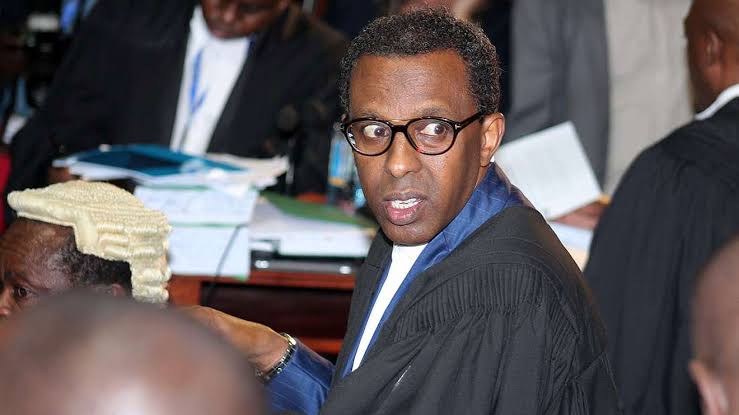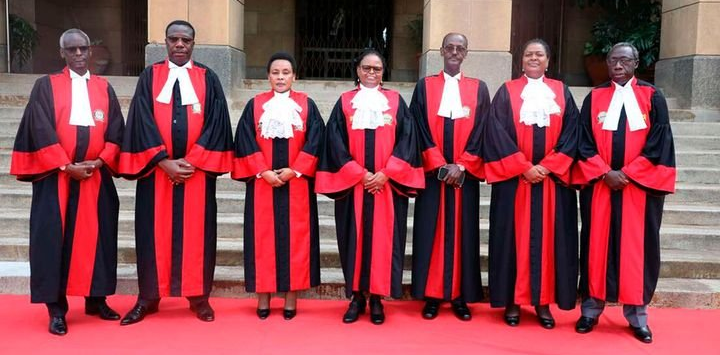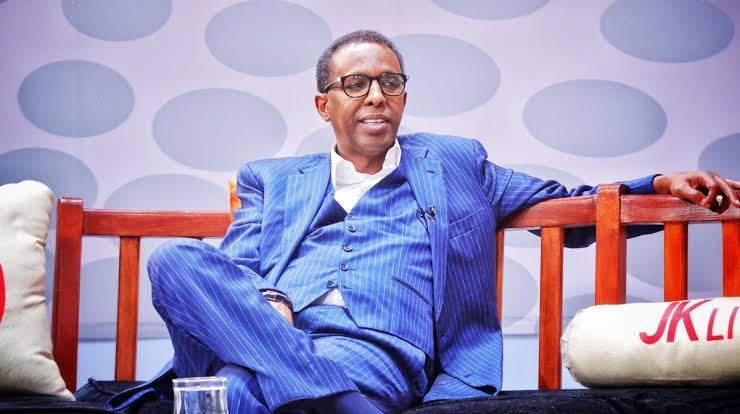A major scandal is brewing in Kenya’s judiciary, and City Lawyer Ahmednasir Abdullahi is raising the alarm.
The World Bank is on the verge of granting the Kenyan judiciary a staggering Ksh 17 billion to build a new court and even provide toilets for the seven Supreme Court judges. But Abdullahi, known for his outspoken views, is not happy about it.

Lawyer Ahmednasir Abdullahi during a past court session. Photo: Citizen TV Kenya Source: Facebook
While many may question whether Ksh 17 billion is worth spending on a new court in a country grappling with corruption in its judicial systems, Abdullahi’s focus is on corruption, transparency, and priorities.
He points out that 65% of Kenyans have no access to clean water, and 72% lack decent healthcare. “Why are we prioritizing a court for the corrupt judiciary when basic needs of Kenyans are being neglected?” he asked.

Supreme Court Judges during a past petition hearing. Photo: The Star Source: Facebook
Abdullahi’s main concern is how the project is being handled. He claims the Office of the Chief Justice has completely sidelined the Judicial Service Commission (JSC), the body constitutionally tasked with making major decisions regarding the judiciary.
The project is being managed with secrecy, zero transparency, and no public input—raising questions about the integrity of the process.
What’s more, Abdullahi points out that a Supreme Court building isn’t even a priority in the current JSC’s five-year strategic plan.
He wonders how the Treasury has chosen to prioritize this building when other more urgent needs should come first.

Chief Justice Martha Koome listens as Deputy CJ Philomena Mwilu Chats Her
Additionally, he questions why the World Bank is funding a physical court when 99% of the Supreme Court’s work is conducted online. Why not invest in Information and Communication Technology (ICT) to improve efficiency in the courts instead?
Abdullahi also criticizes the Chief Justice’s international travels in connection with this deal, further intensifying concerns about secrecy and corruption. “Why is the JSC silent when the entire contract is shrouded in secrecy?” he asked.

City Lawyer Ahmednasir Abdullahi during a past media interview with Citizen TV
The lawyer has vowed to take the issue up with the World Bank, promising to formally write to President Ajay Banga once he returns from London. “Spending Ksh 17 billion to build a court is unacceptable and must stop,” he concluded.
Abdullahi’s outburst comes amidst rising concerns over the corruption in the Kenyan judiciary, often referred to as ‘JurisPESA’ by locals. With public faith in the justice system already shaky, this new controversy could spark even more outrage.
As this scandal unfolds, all eyes will be on both the judiciary and the World Bank to see if this deal will proceed or if it will be halted in the face of moun
ting criticism.



